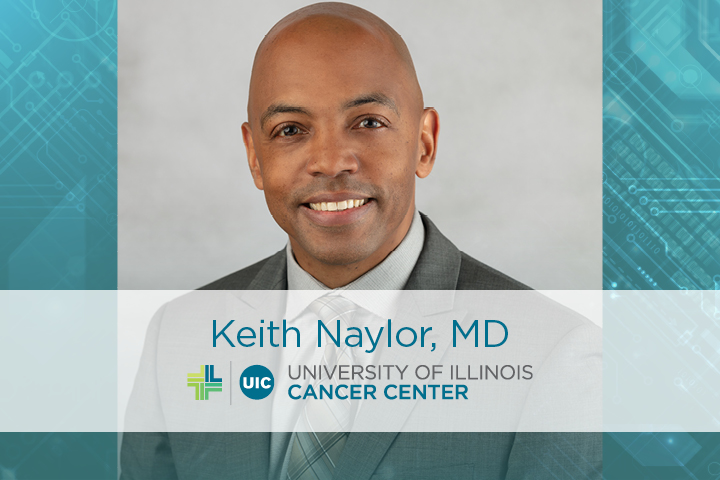
The United States Preventive Services Task Force recently recommended that people of average risk of contracting colorectal cancer be screened for the disease at age 45, rather than 50, which was the previous standard. We asked Dr. Keith Naylor, a gastroenterologist and member of the University of Illinois Cancer Center’s Cancer Prevention and Control program, his thoughts about the new recommendations:
What prompted USPSTF to lower the CRC screening age and do you agree with the decision?
About 90% of colon cancers in the United States are diagnosed in adults over the age of 50 years. However, the incidence of colon and rectal cancers among those younger than 50 years has been steadily increasing. Since about 1990, the overall incidence of CRC in adults younger than 50 years has almost doubled. The greatest increase in incidence was observed for those aged 40 to 49 years, prompting a change in the screening recommendations for average risk patients.
Do you believe the potential benefits outweigh the costs to the health care system and the risk of harm to patients?
I believe that the answer to this question may be specific to the choice of screening exam, where a patient lives, and other individual factors, such as their insurance coverage.
If a patient lives in a location where access to screening services is limited, the lowering of the recommended screening age may result in a further reduction in access as a greater number of patients compete for an already limited resource. Alternatively, if readily available stool-based testing, such as a Fecal Immunochemical Test (FIT), are more widely used among the average risk screening population, we may be able to increase the number of screening tests that are completed while maintaining healthcare equity.
The incidence of colorectal cancer is higher in the Black population compared to whites. Why? Would you recommend Black individuals be screened before age 45?
Current research indicates that the disparity in colon cancer incidence among Black Americans is primarily due to lower rates of up-to-date screening, both at the patient-level and in many states where the majority of Black Americans reside.
When Black Americans have equal access to high-quality care, the disparities in CRC are almost eliminated. The most important actions that any patient, regardless of age or race, can do to reduce their risk of colorectal cancer and other cancers are: follow up with a primary care provider to complete recommended screening; know their family history of cancer on both their mother’s and father’s sides; reduce or quit tobacco-related products; and exercise and maintain a healthy diet.
How should physicians communicate the new guidelines to their patients and address resistance to CRC screening?
Physicians should first obtain and document the family history of cancer to determine if the patient should receive screening that is appropriate for a high-risk person, such as beginning at an age younger than 40 or with an increased frequency.
If a patient is at average risk for CRC, physicians should discuss and offer options for age-appropriate cancer screening. Although in the U.S., colonoscopy is the most common screening exam performed, and it is very important to offer patients all of the recommended options so that they may choose the test that they are most comfortable with.
In the end, the most important screening test is the test that the patient completes.
